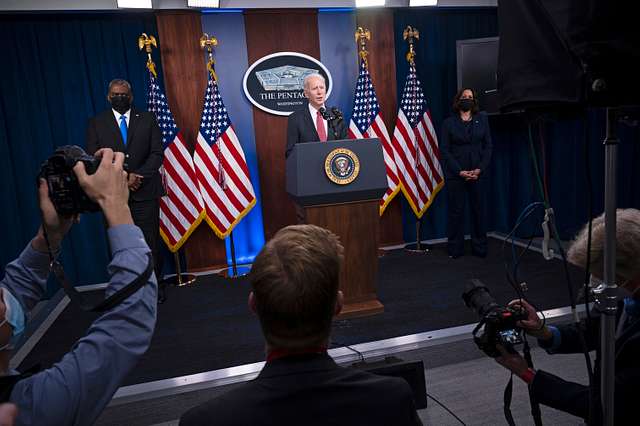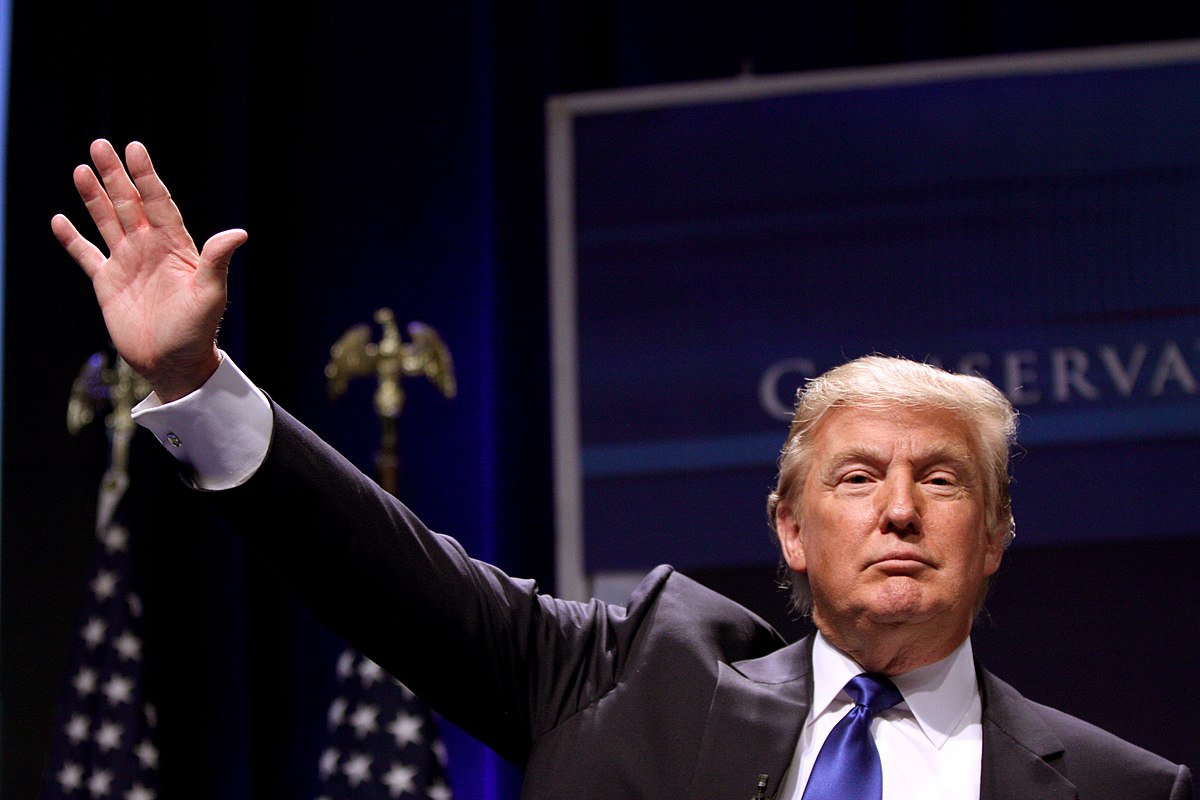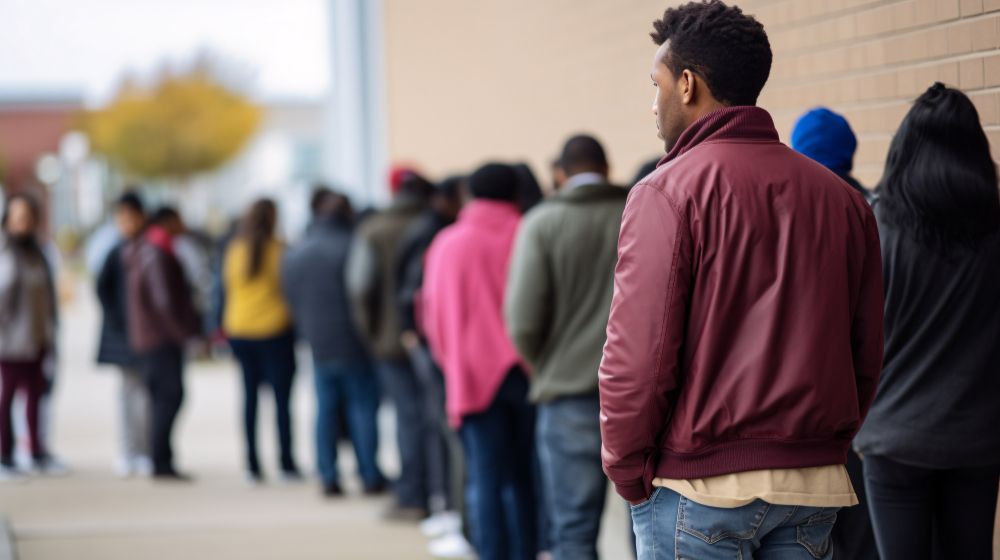On December 8, 2021, The Wall Street Journal published a
poll on President Joe Biden's popularity among Latinos. According to the WSJ, a significant portion of Hispanic/Latino voters, who in 2020 overwhelmingly voted for the Democratic presidential candidate, are leaving the Democratic Party. This news is very bad for Democrats who have traditionally had the captive support of this group: “The nation’s large and diverse group of Hispanic voters is showing signs of dividing its support between Democrats and Republicans more evenly than in recent elections, a new Wall Street Journal poll finds, a troubling development for the Democratic Party, which has long counted on outsize Hispanic support. One year after giving Democratic House candidates more than 60% of their vote, according to polls at the time, the Journal survey found that Hispanic voters are evenly split in their choice for Congress. Asked which party they would back if the election were today, 37% of Hispanic voters said they would support the Republican congressional candidate and 37% said they would favor the Democrat, with 22% undecided.” In an eventual dispute between Biden and Trump, in 2024, Biden's great advantage would come down to a technical draw, with a slight margin in his favor.

This research supports the results published by the website
FiveThirtyEight on October 21, 2021, which pointed to Joe Biden's loss of popularity in all social sectors, but more pronounced among Latino voters. According to the website: “Recent polling suggests that Hispanic approval of Biden’s handling of the pandemic and the economy has fallen sharply. The latest poll from The Economist/YouGov found just 45 percent of Hispanics approved of Biden’s handling of the pandemic, compared with 65 percent in early June. And Politico/Morning Consult’s new survey found Hispanic approval of Biden’s handling of the economy has dropped to 42 percent, compared with 60 percent back in June. Hispanics are also frustrated with how Biden has dealt with immigration — long one of Biden’s weakest issues in the public’s eyes — and although it isn’t the most important issue for Hispanic voters, it is often a highly salient one.”
It is important to emphasize that the drop in approval of presidents in the first year of the term is very common in the United States. From 1993 to 2021, only George W. Bush saw his ratings improve at the end of 2001, greatly due to the impacts of the September 11 terrorist attacks. Biden's popularity was around 44% in December 2021. In a similar period, Donald Trump had an approval rating of only 38%. What is striking is the loss of support among Latino voters, whose drop is around 20% compared to the 2020 elections, as we will discuss later.
Another factor of this phenomenon is the difficulty for incumbent presidents to maintain support in both houses of Congress, as the drop in popularity in the first year negatively influences their party in the disputes for state governments and in the renewal of seats in the
House of Representatives and in the Senate. Again, the exception was George W. Bush, who benefited from the national uproar over the terrorist attacks and the apparently positive results of the military invasion of Afghanistan, facts that ensured a great victory for his party in 2002. However, in 2006, he also suffered a setback in elections midway through his second term, when he lost his majority in both houses.
The case has to be analyzed more broadly at a future time, but it is clear that the challenge to organize a coherent majority around the presidents affects the implementation of the policies outlined in their electoral plans, leading to a paralysis of political system. This situation, along with the great political polarization and the dissemination of fake news on a large scale, is of great concern to political analysts, as it is leading to a dysfunctional situation in the US democratic system.
In the case of Biden, specifically, despite his party having the majority of seats in the Senate, obtained with the vote of Vice President Kamala Harris, this has not been happening in practice, as Democratic senators Joe Manchin (WV) and Kyrsten Sinema ( AZ) are blocking the major government project, which is the allocation of funds for the Build Back Better Framework, which covers investments in infrastructure, social assistance, and energy conversion. The impossibility of carrying out this project has paralyzed the government and frustrated its voters. It's worth remembering that Trump's pledge to build a wall on the Mexican border was also blocked by a split Congress, as was Obama's Medicare (Affordable Care Act), which was mutilated by Congress, disapproved by 34 Democratic congressmen. On the other hand, projects that require a qualified majority of 60 senators become unfeasible, unless they are totally disfigured.
Immigration is among the most controversial issues in disputes between Democrats and Republicans. Changes in immigration policies face barriers in Congress and the Supreme Court. As we discussed in
another article, the Biden government is unable to respond to the migration crisis coming from Mexico and Central America and also to the granting of humanitarian asylum. In this respect, this paralysis directly affects its support among Latinos/Hispanics.
The loss of Democrat support among Latinos is a complex phenomenon and cannot be explained solely by the issue of migration. The Latino community, despite having a strong family and cultural ties with their countries of origin, is made up of a huge contingent of people born in the United States and who are integrating into society and into the formal labor market. This segment has other agendas that go beyond the themes traditionally attributed to them, such as the legalization of undocumented immigrants, the overthrow of the Cuban government, or the expansion of social assistance.
Polls show that Latino voters are moving to the right
Polls released by EquisLabs (an institution close to the Democratic Party that seeks to analyze and mobilize the Latino community in the United States) showed that Latino/Hispanic support for the Democratic Party declined sharply between the 2016 and 2020 national elections.
This problem was reflected in the poor performance of its candidates in the November 2021 elections in New Jersey and Virginia. Until then, Democrats had strong support from this community, around 70%. However, polls show that this advantage has receded far, approaching a tie with the GOP.
The first pool “
2020 Post-Mortem - Part one: Portrait of a Persuadable Latino”, was released on April 1, 2021, which sought to detail the origin of Trump's electoral gains, particularly in regions with a high density of Latino population, such as Miami-Dade County, in Florida, and the Rio Grande Valley, in Texas. The second part of the survey, "
2020 Post-Mortem - -Part two: The American Dream Voter", was published on December 14, 2021, and sought to understand the “why” of these shifts to the right in the Latino electorate. Both polls confirm a trend of change in the behavior of the Latino electorate already pointed out by the FiveThirtyEight and The Wall Street Journal surveys.
Among the findings of EquisLabs research, we can mention:
1) Donald Trump's stand against lockdown policies during the COVID-19 pandemic likely played a significant role in pushing Hispanic voters to the right. Faced with the loss of income and the despair caused by the economic downturn, the restrictive measures provoked great discontent, which led part of the electorate to align with the president and his insistent denial of scientist advice. This posture is because many workers or small entrepreneurs of Latin origin are linked to the service sector, notably tourism, retail trade, bars, restaurants, and hotels. Furthermore, as
highlighted on our website, the population of Latin/Hispanic origin is the target of massive fake news campaigns, notably those that underestimated the seriousness of pandemic, rejection of the use of masks, reluctance to take the vaccine and, more specifically, the need for lockdowns. In this respect, Trump's positions were followed by most Republican governors.
2) A significant portion of the Democrat Latino/Hispanic community is quite conservative in customs and political ideology. It is worth remembering that a very influential segment of the Latino community in the United States is of Cuban origin and that it still harbors a strong grudge against Cuba's socialist government. Added to these are a growing contingent of Venezuelans, Nicaraguans, Brazilians, and Colombians who have settled in the United States and are critical of leftist policies implemented in their home countries or are hostile to leftist armed forces insurgency, as in the case of Colombia. In this sense, there is a solid aversion to progressive currents in the Democratic Party, especially those associated with Bernie Sanders and Alexandria Ocasio-Cortez, who are openly Social Democrats. The strong reactions to the murder of George Floyd caused a lot of insecurity in this part of the population, even more, when the conservative media tried to associate the demonstrations against the police as attempts to subvert the established order. In this regard, the Republican Party's campaign to label the Democratic Party as "socialist" likely had a significant impact in 2020. As the poll shows, 2020 Hispanic voters said they were more concerned about the Democratic Party embracing socialism than the GOP embracing fascism.
Also, in this regard, the religious issue is pushing Latinos further to the right. According to
Christianity Today, Hispanic Evangelicals, a rising group that follows the trends of their countries of origin where neo-Pentecostal churches are overgrowing, is aligned more with Trump than with Biden.
Opposition to abortion and defense of the so-called traditional family tipped the balance in favor of Republicans, as Democrats are more likely to support liberal causes linked to minority rights, including abortion rights and advocacy same-sex marriage.
3) Immigration is no longer the priority for the Hispanic/Latin community. The EquisLabs poll found that from 2016 to 2020, the importance of immigration for Hispanic voters declined considerably, losing out to economic themes such as post-pandemic recovery and inflation and the specific problem of the COVID-19 pandemic. Despite Trump repeatedly insulting the Mexicans, promising to build a wall on the Southern border, and adopting draconian policies to repress the flow of immigrants across the southern border, the Latino voters supported him strongly in South Florida and Rio Grande Valley in the 2020 election. In addition, the Latino voters also expressed their disillusionment with Democrats regarding Barack Obama's inability to reform immigration rules during his eight-year term.
4) The Democrats' loss of support from the working class is another factor to be considered. Although Democrats have the image of a party more committed to workers and ordinary citizens, and Republicans as the party linked to "big business," Donald Trump's role in resurrecting economic protectionism and communicating directly with the working class undermined a strong bulwark of the Democratic Party. The outcome of EquisLab's poll is that Hispanic voters still believe that Democrats care more about workers, but they are not convinced the party knows how to put this into practice. Hence, the Republicans' onslaught between the Latin/Hispanic working class.
Concluding this analysis, it is worth mentioning A.B. Stoddard, from the conservative news website
RealClearPolitics that shows the challenges of Joe Biden's government: “These days the Democratic Party is like a sad addict whose life has fallen apart, with too much to resolve and repair all at once. Sure, the aching hip and broken relationships can be put off for another day, but the lost job, wrecked car, and empty bank account require immediate attention. President Biden and the Democrats are — simultaneously — working to stave off the failure of his economic agenda, control a once-again rampaging pandemic, mitigate the effects of the worst inflation since 1982, and rescue democracy from new laws that permit the GOP to nullify the next election, all before they likely lose both chambers of Congress next year.”
If there is no fortuitous event, like a war or a terrorist attack that boosted George W. Bush's popularity in 2001, the Democrats are unlikely to be able to keep the current benches in the Senate and House of Representatives. The loss of a base previously considered solid, such as Latino voters, is a considerable risk given the current level of political polarization in the United States, where tiny margins of votes define elections.
In this respect, it is worth adding that Donald Trump's leadership in the GOP is undisputed, while Biden fails to unify his party. If, with the current level of parliamentary support, his government is practically paralyzed, what will happen to him when he faces an opposition majority in both houses of Congress and the activism of radical groups linked to the Republican Party's right wing?
 nara.getarchive.ne
nara.getarchive.ne











